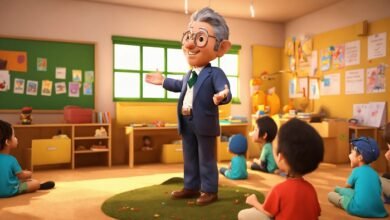Learn to Sit Back and Observe: Not Everything Needs Your Immediate Action

In our fast-paced world, the urge to react immediately to every situation is overwhelming. However, there’s profound wisdom in the ability to sit back and observe, understanding that not everything needs our immediate attention or action. This skill, often overlooked, can lead to better decision-making, improved relationships, and a more peaceful mind. In this blog post, we will explore why learning to sit back and observe is crucial, how it can transform various aspects of your life, and practical steps to master this art.
The Importance of Patience in Modern Life
Learning to sit back and observe requires patience, a virtue that’s increasingly rare in our instant gratification society. By resisting the urge to respond immediately, we give ourselves time to process information more thoroughly. This patience can lead to more thoughtful and effective responses rather than impulsive reactions.
The Power of Observation
When you learn to sit back and observe, you develop a keen sense of awareness. Observing without immediate judgment allows you to understand situations and people more deeply. This heightened awareness can lead to better insights and more informed decisions.
Emotional Regulation Through Observation
Emotions can cloud our judgment, leading to hasty decisions. By learning to sit back and observe your emotions, you can gain control over them. Not everything needs an emotional reaction. Sometimes, simply observing your feelings can help you understand their root cause and respond more calmly.
Enhancing Relationships
Interpersonal relationships benefit greatly when you learn to sit back and observe. Not every disagreement requires immediate confrontation. By observing and understanding the other person’s perspective, you can approach conflicts more diplomatically and with greater empathy.
Observation as a Learning Tool
Observation is a powerful learning tool. When you learn to sit back and observe, you allow yourself to absorb information more completely. This approach is beneficial in both personal growth and professional development, as it enables continuous learning and improvement.
Mindfulness and Meditation
Practices like mindfulness and meditation are built on the principle of observation. By sitting back and observing your thoughts without judgment, you can achieve a state of mental clarity and peace. Not everything needs your immediate action; sometimes, the best response is to observe and let things be.
The Role of Observation in Problem-Solving
Effective problem-solving often requires a period of observation. By taking the time to sit back and observe the problem, you can identify underlying issues and potential solutions more clearly. This methodical approach leads to more innovative and effective solutions.
Reducing Stress and Anxiety
Constantly feeling the need to react can lead to high levels of stress and anxiety. Learning to sit back and observe helps reduce these feelings. When you understand that not everything needs an immediate response, you can approach life with a calmer and more composed mindset.
Cultivating Creativity
Creativity thrives in an environment of observation. By sitting back and observing the world around you, you can find inspiration in the most unexpected places. This passive intake of information can spark new ideas and innovative thinking.
Practical Steps to Enhance Observational Skills
To learn to sit back and observe, start by practicing mindfulness and meditation. Dedicate time each day to observe your surroundings and your internal thoughts without immediate reaction. Over time, this practice will become a natural part of your daily routine, enhancing your ability to approach life thoughtfully and deliberately.
Conclusion
Learning to sit back and observe is a powerful skill that can transform various aspects of your life. By understanding that not everything needs immediate action, you can make better decisions, enhance your relationships, and reduce stress. Embrace the art of observation and see how it can lead to a more balanced, thoughtful, and fulfilling life.
FAQs
1. Why is it important to learn to sit back and observe? Learning to sit back and observe allows you to process information thoroughly, make better decisions, and respond more thoughtfully rather than impulsively.
2. How can observation improve my relationships? By observing and understanding others’ perspectives, you can approach conflicts with greater empathy and diplomacy, leading to healthier and more constructive relationships.
3. What are some practical ways to enhance my observational skills? Practicing mindfulness and meditation, dedicating time to observe your surroundings and thoughts, and resisting the urge to react immediately are practical ways to enhance your observational skills.
4. How does observation help in problem-solving? Observation helps identify underlying issues and potential solutions more clearly, leading to more innovative and effective problem-solving.
5. Can learning to observe reduce stress and anxiety? Yes, by understanding that not everything needs an immediate response, you can approach life with a calmer and more composed mindset, reducing stress and anxiety.





